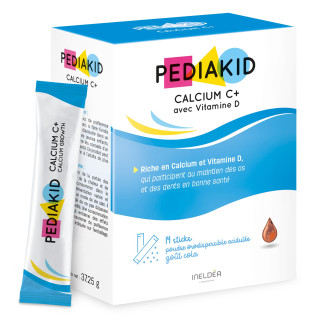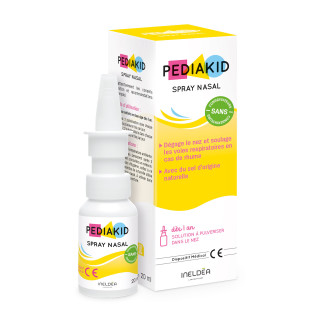Adults are advised to consume probiotics to balance the intestinal microbiome. In fact, our digestive system contains microorganisms whose role is to facilitate digestion but also to boost our immune system. Taking antibiotics or having an unbalanced diet can have an impact on our intestinal flora and in such cases, taking probiotics is recommended. But what about children? Is it appropriate given their young age? Below are three keys to learn everything about giving probiotics to children.
KEY N° 1 : DEFINITION OF PROBIOTICS
Probiotics are living microorganisms found in our digestive tract. They are classified as good bacteria because they allow our bodies to carry out various functions, such as digestion and immunity. If there is an imbalance in the intestinal flora, in other words the set of microorganisms present in our digestive tract (parasites, bacteria, fungi, etc.), it is sometimes necessary to consume probiotics in the form of a food supplement. These help rebalance the good and bad bacteria in the intestinal microbiome, the other name for the intestinal flora. In fact, without this the body is exposed to functional problems. Taking antibiotics also causes disruption of the intestinal flora and in such cases a course of probiotics can be beneficial. Probiotics are found in yoghurt, fermented milk, kefir, soya derivatives, sauerkraut, brewer’s yeast, olives, gherkins, etc. Probiotics can also be consumed in the form of a powder or capsules as a food supplement. Consuming probiotics has many benefits for your body. They are therefore recommended to stimulate immunity, for digestion, constipation, weight loss, promoting the synthesis of vitamins B and K, and even to reduce anxiety and depression.
KEY N° 2 : THE INTESTINAL MICROBIOME IN CHILDREN
As soon as a child is born, its digestive tract is invaded by living microorganisms. This takes place through breathing, feeding (breastfeeding in particular), the environment… but also via the maternal microbiome during the baby’s time in the intrauterine environment. It should also be pointed out that the birthing method is also crucial for colonisation of the intestinal microbiome; caesarean births can alter the implantation of certain of certain bacteria. This is how the child’s microbiome is constituted before it attains its adult form at the age of 2-3 years. The child’s environment is crucial to establishing good or bad microbiome balance. Some organisms contribute to good development of the immune system whereas others are harmful and foster the development of diseases. The presence of pathogenic microorganisms can lead to the appearance of allergies, inflammation of the intestine, weight gain in children. Given that the intestinal flora plays a role from birth in your baby’s health, one can wonder whether probiotics might remedy imbalances, for example. We also know that taking probiotics during pregnancy can have a positive effect on the development of the intestinal microbiome. This is also true when the infant is given probiotics from birth.
KEY N° 3 : PROBIOTICS FOR CHILDREN
Probiotics have the advantage of conserving the intestinal flora of adults. This is also the sane for children and it seems that probiotics are beneficial for their bodies. This makes it possible, in particular, to treat and prevent various diseases linked to the digestive or respiratory systems. If your child suffers from diarrhoea, whether viral or bacterial, probiotics protect the intestinal flora against infection. This is taking probiotics as prevention and it also reduces the duration and severity of gastroenteritis symptoms. In infants, giving probiotics has the advantage of relieving colic. Children who suffer from Crohn’s disease, a chronic inflammatory disease of the intestine, will have better immunity if they take probiotics.
Where there is an imbalance, probiotics act to protect the intestinal flora of very young children as well as protecting the body against certain diseases. The infant’s intestinal microbiome begins to build up from birth, only becoming mature around the age of 2-3 years. The provision of probiotics can be beneficial, in particular to prevent digestive disorders and respiratory infections, as well as for eczema.



